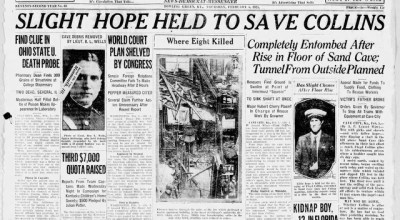World is better due to Reagan
Published 12:00 am Tuesday, December 1, 1998
Once while teaching a class, Sigmund Freud talked of the sexual symbolism of a number of things including cigars while smoking a huge stogie. When he noticed his students eying him, he remarked, And sometimes, a cigar is only a cigar. In the superficial reporting about Edmund Morris biography of Ronald Reagan, commentators continually have remarked on the authors inability to grasp the essential, inner Reagan. But columnist Cal Thomas had it correct when he noted that Reagans presidency wasnt about him; it was about us. Researchers might have been searching for something that was on the surface all along. No one can know the heart and mind of another, but it is apparent that the former actor had a number of superlative traits that aided his presidency. First, as Mr. Morris noted, President Reagan had a supreme self-confidence and assurance, not arrogance. It wasnt arrogance because, although the president had confidence in himself, the views forming the foundations of his confidence were his religious faith and his belief in the basic goodness of the American people. Second, the president was totally unconcerned with what polls or his critics said. Any number of aides report going to President Reagan and complaining about what some columnist or pundit had written. The president would always shrug it off. Dont worry about, he would say. Its not important. Of course, it wasnt. But few people could ignore stinging criticism. Ronald Reagan could. When asked what he thought the former president would think of his biography, Mr. Morris said President Reagan wouldnt care what it said. He did his job as president and helped the nation, so what others said about it was immaterial to him, the biographer noted. Another remarkable personality trait of the former president is that, although he loved the presidency, he didnt need it. He had a life before he entered politics and he had a life after he stepped from public office. President Reagan was immune to Washingtons glitter and glitz. He was perfectly content to return to his California ranch, ride his horses, chop wood and generally enjoy life. For many public officials, a return to private life is torture. Historian Doris Kearns Goodwin has written about how President Lyndon Johnson was emotionally devastated when he returned to his Texas ranch. Without his public office, he didnt know what to do. President Bill Clinton has been in public life for more than 20 years. When he retires to private life, he may be closer to the Lyndon Johnson mode than the Ronald Reagan mode. No doubt President Reagans faith and belief in America led to the endless optimism that infused his campaign and resonated with the American people. In the 1980 campaign, the nation was an economic basketcase. Inflation was in double digits, interest rates were high, unemployment was edging close to double digits. In addition, there were U.S. hostages in Iran and the Soviet Union had made inroads in Central America and Africa. President Jimmy Carter spoke of national limits in his speeches. Ronald Reagan spoke of a new morning for America and said there were no limits. When commentators said the nation would have to negotiate with the Soviet Union because it would be world power for a long time, President Reagan spoke of communism as being discarded in the ash heap of history. He said it was a bloody, historical aberration that soon would be in ruins. Historians and commentators shook their heads at his simplistic views, yet he was right and they were wrong. President Reagan can be forgiven for not knowing about, or forgetting small things, because he was unerringly right on major issues. He was unfailingly right on the moral issues of our time. As Mr. Morris noted, the world changed a great deal for the better during the Reagan presidency. Those changes did not come coincidentally, but because of Ronald Reagan. As his biographer noted, He is … the bravest and most incorrupt figure Ive ever studied. The essential Ronald Reagan was the one we saw as president. He loved this country and thought it had been magnificent to him. He, as president, was magnificent to it.




